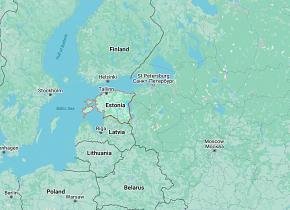Security Perimeter Agreements expands NAFTA against sovereignty rights of Canadians
The continentalists are out of the cupboard: The United States and Canada are taking another crack at North American integration, this time without Mexico. Civil servants are dusting off their policy playbooks, business lobbyists are flexing their muscles, and politicians are sexing up their communications strategies. Their opponents, activists fighting for a new economic model, are preparing a counteroffensive that we hope will succeed — again.
Earlier this year, U.S. President Barack Obama and Canadian Prime Minister Stephen Harper jointly announced they would be restarting NAFTA-plus regulatory and security cooperation discussions, labeling the talks “Beyond the Border.†It marked the rebirth of the failed Security and Prosperity Partnership (SPP) — leaving the increasingly complicated relation between the United States and Mexico on its own. Controversially, Canada is now talking about a “perimeter†approach for North American security — a term that past Liberal governments had avoided using. The Beyond the Border working group, made up of senior foreign affairs and public safety bureaucrats, has already finished consulting business and corporate lobby groups — with only token labor outreach. The two governments are planning to release a Beyond the Border action plan this summer.
The perimeter plan will likely have the same economic and security flaws as the SPP and other failed NAFTA expansion packs. Efforts to more closely integrate the U.S. and Canadian economies and surveillance infrastructures will not create jobs or actually make anyone safer. Beyond the Border does, however, pose threats to our privacy, democratic sovereignty, and economic options for the future. Canada and the United States have agreed to deploy “common technical standards for the collection, transmission, and matching of biometrics that enable the sharing of information on travelers in real time.†But the privacy implications of using biometrics in travel documents, not to mention outstanding questions of their efficacy, fuel ongoing debates on both sides of the border.
internet site reference: LINKS
Comments
There are 0 comments on this post














